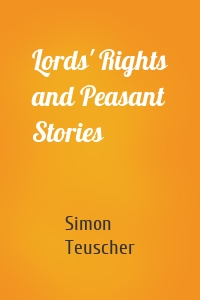Simon Teuscher
1 кн.
Lords' Rights and Peasant Stories
In the mid-nineteenth century, Jacob Grimm published a collection of late medieval records of local law—called Weistümer —that was scarcely less comprehensive than his famous collection of fairy tales. As with the fairy tales, Grimm assumed that before their transcription, people had handed these down orally from time immemorial. His interest in these customary laws arose from their seemingly folkloristic notions of custom and from their poetic narratives about...
| Автор | Simon Teuscher |


